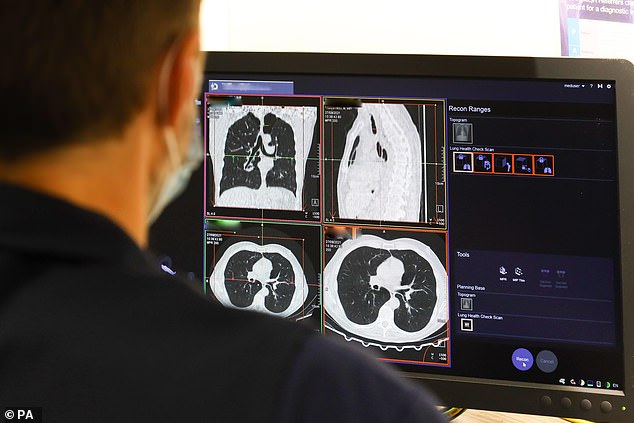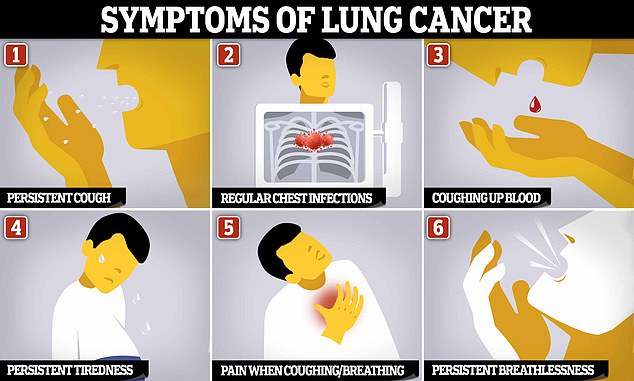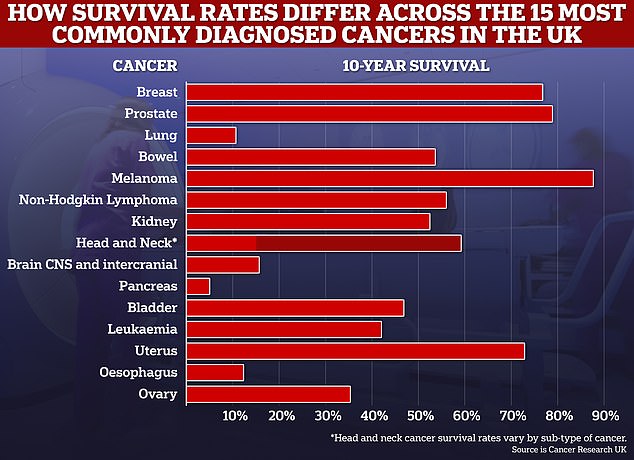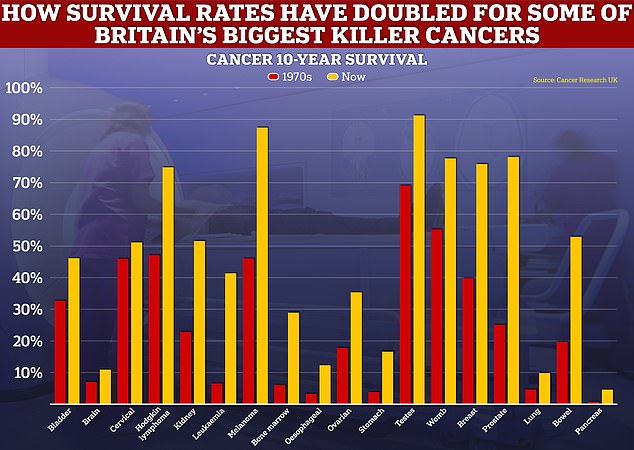Scientists are developing a “revolutionary” lung cancer vaccine which research suggests will be effective in preventing up to 90% of cases.
The vaccine – which will be given to those most at risk of developing the disease – will train the immune system to detect and attack early signs of the disease.
Experts have described it as a “crucial moment” in the fight against the devastating disease, which affects 48,500 people each year in the UK.
Known as “LungVax”, it is created by the University of Oxford, the Francis Crick Institute and University College London.
Lung cancer cells appear different from normal cells because of the presence of “alarm” proteins called neoantigens.

The vaccine – which will be given to those most at risk of developing the disease – will train the immune system to detect and attack early signs of the disease. Experts have described it as a “crucial moment” in the fight against the devastating disease, which affects 48,500 people each year in the UK.
Your browser does not support iframes.
Your browser does not support iframes.
Neoantigens appear on the cell surface due to cancer-causing mutations in the cell’s DNA.
The LungVax vaccine will carry a strand of DNA that trains the immune system to recognize these neoantigens on abnormal lung cells.
It will then activate the immune system to kill these cells and stop lung cancer.
Professor Tim Eilliot, lead researcher at the University of Oxford, said: “Cancer is a disease of our own body and it is difficult for the immune system to distinguish between what is normal and what is a cancer.
“Getting the immune system to recognize and fight cancer is one of the greatest challenges in cancer research today.
“This research could provide a commercially available vaccine based on Oxford vaccine technology, which has proven successful during the Covid pandemic.”
“If we can replicate the type of success seen in trials during the pandemic, we could save the lives of tens of thousands of people every year in the UK alone.”
Researchers have received up to £1.7 million from Cancer Research UK and the CRIS Cancer Foundation.
The team will receive study funding over the next 2 years to support laboratory research and the initial manufacturing of 3,000 doses of the vaccine at the Oxford Clinical Biomanufacturing Centre.


Symptoms of lung cancer are often not visible until the cancer has spread to the lungs and other parts of the body.
Your browser does not support iframes.




While the level of progress in cancer survival for some forms of the disease has been rapid, such as for breast and prostate cancers, others, such as lung and pancreas, have only improved. ‘at a snail’s pace.
If successful, the vaccine will move straight into clinical trials, involving people most at risk of disease, such as current and former smokers who are currently eligible for targeted lung health checks in certain areas of the UK.
Fewer than 10 percent of people with lung cancer survive their disease for 10 years or more.
Professor Mariam Jamal-Hanjani from University College London and the Francis Crick Institute said: “We believe the vaccine could cover around 90% of all lung cancers, based on our computer models and previous research, and this funding will allow us to take the first essential steps towards patient trials.
“LungVax will not replace quitting smoking as the best way to reduce your risk of lung cancer.
“But it could offer a viable pathway to preventing some of the earliest cancers from occurring.”
Lola Manterola, President of the CRIS Cancer Foundation, said: “We are at a crucial moment in the history of cancer research and treatment.
“For the first time, technology and knowledge of the immune system allow us to take the first steps towards cancer prevention.
“This groundbreaking study represents a decisive step in this direction, and we at CRIS consider it essential to support it.”

